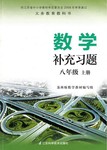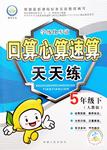题目内容
Interviewing someone for a job is not as easy as it looks. First, as the interviewer, you’re tasked with finding the person who will not only do the job well but also fit in well with the other employees.
You have to make an evaluation of abstract qualities that can’t be found on a résumé. Because you have to repeat the process for every potential employee, you end up asking question after question, applicant after applicant.
Still, interviewers need to be told something: “What is your biggest weakness?” is not a good question. It just isn’t.
Now, job seekers have to understand that interviewers want to find some way to know what makes an applicant different from others. Asking questions that are seemingly impossible to answer is one way to see who can think creatively. Then what may be a proper way to respond to such a question?
Honesty, with a twist(新手法)
“‘What are your three strengths and three weaknesses?’ is a classic, but not too many people know how to answer this,” says Kenneth C. Wisnefski, founder and CEO of WebiMax, an online marketing company.
“As an interviewer, we want to hear strengths that describe initiative(主动性), motivation and dedication. The best way to respond is to include these qualities into specific ‘personal statements.’
“Similarly, weaknesses should be positioned as a strength that can benefit the employer.”
“I like to hear applicants state an exaggerated strength, and put an interesting twist on it. An example of this is, ‘My initiative is so strong, that sometimes I take on too many projects at a time.’”
This answer leads with a strength that employers want —initiative —and still acknowledges that you’re not perfect.
Although you might consider this acknowledgement too honest, it works because it proves you’re being honest.
Honesty, with progress
When you consider what your weaknesses are, think about how you have attempted to overcome them. No one is perfect, so pretending that you are a perfectionist will come across as insincere.
Debra Davenport, author of “Career Shuffle,” believes citing(引用) examples are the best approach.
“My preferred response for this question is to tell the truth without damaging the applicant’s image.” Davenport explains.
“A better response might be, ‘I’ve had some challenges with work-life balance in the past and I realize that a life out of balance isn’t good for me, my family or my employer. I’ve taken the time to learn better time and project management, and I’m also committed to my overall wellness.’”
The answer adds some dimension to the question, and proves you’ve thought beyond the answer. You’ve actually changed your behavior to address the situation, even if you haven’t completely overcome the weakness.
Put yourself in the interviewer’s shoes
However you decide to answer, Debra Yergen, author of “Creating Job Security Resource Guide,” recommends job seekers imagine themselves sitting on the other side of the desk.
“If you were doing the hiring, what would you be looking for? What would be your motivation for asking certain questions? Who would you be trying to weed out? If you can empathize (共鸣) with the interviewer, you can better understand what they want and need, and then frame your qualifications to meet their needs for the position you seek.”
Once you consider what the goal of the question is and figure out what your honest answer is, you’ll be able to give the best possible answer to a tricky question.
|
Job Interviews |
|
|
Tasks for a job interviewer |
☆ Find the person both doing the job well and 1. along well with other employees. ☆2. abstract qualities of applicants by asking one question after another. |
|
3. to interviewees for replying to a tricky question |
☆ Understand that the interviewers want to 4. between applicants and that asking a question seemingly impossible to answer is one way to see an applicant’s 5. . ☆ Be 6. and inventive when asked about your weaknesses, and respond properly. ☆ Never 7. you are perfect, which may be believed to be insincere. ☆Try to show that you’ve changed a lot 8. you haven’t completely get rid of your weaknesses. ☆ Put yourself in the interviewer’s shoes and have a better 9. of their needs for the job. |
|
Conclusion |
☆ With the goal of the question 10. into account and the honest answer in your mind, you will be able to give the best possible answer. |
1.getting
2. Evaluate
3.Tips / Suggestions
4.distinguish
5.Creativity
6.honest
7.pretend
8.though / although
9.understanding
10.taken
【解析】
试题分析:
1. getting 同义词转换。根据第一段最后but also fit in well with the other employees.可知是指能够和别人友好相处。故使用get along well with…。
2.Evaluate 词性转换。根据第二段第一句make an evaluation中的名词evaluation。表格中要使用动词evaluate.
3.Tips / Suggestions 总结归纳。接下来的都是作者在文章指提出的建议。
4.distinguish 同义词转换。根据文章第四段Now, job seekers have to understand that interviewers want to find some way to know what makes an applicant different from others可知面试是让我们区别不同的申请人的差别。使用动词distinguish。
5. Creativity 词性转换。根据第四段第3行who can think creatively中的副词creatively转换成表格里的名词creativity。
6.honest 词性转换。根据Honesty, with progress中的名词honesty,转换成这里的形容词honest。
7.pretend 词义转换。根据No one is perfect, so pretending that you are a perfectionist will come across as insincere.可知我们不需要假装完美。使用pretend。
8.though / although 句意转换。根据I’ve taken the time to learn better time and project management, and I’m also committed to my overall wellness.’”可知要表达出:尽管并没有完全改变自己的缺点,但是已经有了很大的改变了。
9.understanding 同义词转换。根据Put yourself in the interviewer’s shoes
可知是指要多理解对方。
10. taken 同义词转换。根据最后一段Once you consider what the goal of the question is and figure out what your honest answer is可知所选之词与consider是近义词,同时还要注意词形的变化。
考点:考查任务型阅读
点评:本文属于任务型阅读,在完成此类题目时,要仔细阅读短文和表格,根据文章的篇章结构找出原文中的相应的语群,从同义词,近义词,反义词等角度出发,寻找原词再现,进行归纳总结,确定合适的答案。

 补充习题江苏系列答案
补充习题江苏系列答案 学练快车道口算心算速算天天练系列答案
学练快车道口算心算速算天天练系列答案A well-known old man was being interviewed (采访) and asked if it was correct that he had just celebrated his ninety-nine birthday.
“That’s right.” said the old man. “Ninety-nine years old, and I haven’t an enemy in the world. They’re all dead.”
“Well, sir.” said the interviewer, “I hope very much to have the honour of interviewing you on your hundredth birthday.”
The old man looked at the young man closely, and said, “I can’t see why you shouldn’t. you look fit and healthy to me!”
1. The old man said he had not an enemy in the world, which shows that he was a very .
A. friendly man—he never made any enemies
B. healthy man—he lived longer than all his enemies
C. lucky man—his enemies had all died
D. terrible man—he had got rid of all his enemies
2. When the interviewer said that he hoped very much to have the honor of interviewing the old man again the following year, .
A. he was trying to make the old man happy
B. he wished he himself would live another year
C. he did not believe the old man would live to be one hundred
D. he did not believe he would interview the old man again
3. When the old man said, “I can’t see why you shouldn’t”, what he meant was .
A. “You must try to live another year to interview me again next year”
B. “Of course you can see me again since you’re so fit and healthy”
C. “If I live to a hundred years, you should interview me again”
D. “Unless you live another year, you wouldn’t be able to interview me again”
4. What kind of man would you say the old man was?
A. He was silly.
B. He was unpleasant
C. He was very proud and sure of his health.
D. He was very impolite to young people.